- Home
- Неизвестный
Inheritors Page 7
Inheritors Read online
Page 7
James spent a month taking in wisdom from him.
“Lead with your left and cross with your right. Good.” Shaftoe took a couple of hits on the belt and returned to his gin-bottle. “Pity there isn't somebody here your own weight. I'd lay an even dollar with Geoff—if he had a dollar.” He raised his glass. “Well, here's to the day when he has!”
James returned to school, rebelliously but with an experimental interest. As he drove across the bridge beside Sambo they met Larry riding in. The sadness of leaving home for another adventure in the unfriendly world made James remember the happy times they had spent together—long, long ago it seemed to him, looking back with a child's exaggerated sense of his scurrying days and pleasures and his present unmitigable pains. Now he was sorry for the way he had behaved about the chestnut. He leant out to say good-bye, but Larry rode past with his head down. “Stuck-up little swipes the pair of them,” Larry was thinking of his brothers. “The way they talk—like that limejuicer Shaftoe.” He hated Shaftoe, whose easy flow of words made him uncomfortable. He thought Shaftoe was trying to take a rise out of him, and so he usually was.
At the store of an evening the stockmen and boundary-riders forgathered to goggle at Shaftoe's card tricks. He offered a card and a pencil. “Now our gifted colleague, Mr Larry Cabell, will oblige the company by inscribing his name. Mr Cabell!”
Larry hung back outside the pool of lamplight which gapped with unfathomable darkness their upturned mouths, like fledgelings at Shaftoe's feet.
Monaghan shoved him forward. “Go on, Larry. He wants you to write down your monniker.”
“Go to hell.”
“My ultimate colonial experience without a doubt,” Shaftoe chuckled, “but not to-night, Josephine.”
“What's he say?” Monaghan asked.
“Aw, clean your ears.”
Larry seized the pencil, wet the point with his tongue, and laboriously, agonizingly, wrote his name, LARY CABELL.
Shaftoe took the card and examined it, screwing up one eye, then the other, holding the card at arm's length, rubbing it on his trousers, grimacing. “Mercy sakes,” he cried out at last. “What's this? 'I'm a Scandinavian cockatoo.'” He blinked at Larry. “Dear me.”
Sambo and Monaghan rocked on the tea cases, Geoffrey's squeaky voice rising above the others.
Larry reddened. “That's not there. My name's there.”
“Gentlemen!” Shaftoe held up his hand. “I put the case to you. I ask the young gent to write his name on a ten of hearts. You see him do so. And the words you see him write, as you can read for yourself, are 'I'm a Scandinavian cockatoo,' and now he has the face, gentlemen, to deny it. Is that a ten of hearts and is that the gent's handwriting?” He handed the card around.
Monaghan, with his tongue hanging out at the corner of his mouth and one eye closed, pretended to read. Larry snatched the card from him and slowly spelt out “I'm a Scandinavian cockatoo,” written in his own handwriting. He threw the card on the counter.
“Don't trouble to beg pardon,” Shaftoe said mockingly.
Monaghan's raucous laughter hooted up into the rafters while Larry, confused and maddened by such inexplicable tricks, slunk back to his corner and pulled his hat over his face.
“I don't believe Larry wrote that,” Geoffrey piped up, “because he doesn't know how to spell long words. He doesn't even know how to spell his name. He never went to school.”
“Sad,” Shaftoe said. “I daresay he spent his youth running after those blackgins.”
“Haw! Haw!” Monaghan roared. “Now I know where all them crossbreds down Pyke's Crossin' come from, Larry. Haw! Haw!”
Larry slunk out. In the darkness he stumbled over a bucket and kicked it across the yard. “Bastard,” he muttered. “Could he ride a brumby or chuck a steer? Skite.” He repudiated the whole brood of them with their superior, easy, educated voices and manners. Here was a world different from his, where the things most valued were not the things he did best. He had been used to hearing men applaud him for the way he broke a horse or handled a mob of cattle or sheared a sheep, but Shaftoe and Miss Montaulk and Geoffrey, and now James, seemed to look down on him, and his father, with every word, made it plain that from this mysterious other world to which his brothers and sister belonged he was shut out, that Sambo and Monaghan, not James and Geoffrey, were his proper mates.
“Who the hell cares about them piano tunes,” he jeered to Sambo as they hung over the fence one afternoon listening to Harriet practise her pieces.
“Aw,” Sambo protested. “It's real pretty. Like cow-bells a long way off.”
Larry nodded to the shearers' hut, whence came the wheezy chug-chug of a concertina. “That's the kind of music I like.”
Chapter Eight: Larry Finds His Mates
The shearers were beginning to arrive. They came, generally in pairs, a man and his mate, from the north-west—big fellows in flannel shirts and stained moles, with an oilskin, like a cavalry pack, tied neatly across their saddles, and their packhorses laden with frying-pan, smokeblackened billy, patched tent-fly, and newspapers trailing behind. Their great yearly trek had begun, from shed to shed, from the far Outside—where the stations were little lonely townships in treeless plains of brown grass haunted by mirages and the fear of men holding a perilous redoubt at the caprice of burning skies—to the verge of the matted scrublands of the coast, to the rolling grass seas of the Darling Downs, and, beyond, across New South Wales, to the Alps, to the Southern Ocean; and with them went a wave of excitement, keying up the flaccid days with work to be done quickly, with fights and anxieties and the tangible assurance, in the mounting piles of wool-bales, that the struggles of the year had not been wasted. Here the stir was just perceptible. Cabell was restless, worried about his sheep and the way the men would handle them. He rode around the stations telling the riders when to bring their flocks in so that the shearers would be kept busy and no time wasted, driving in cattle for rations, going over the stocks in the storeroom to see that there was enough flour and tobacco and tea for the coming rush and fixing with Shaftoe the exorbitant prices at which these things were to be sold, watching the sky incessantly, for fear of rain that would wet the wool and leave the shed-hands, “a pack of day-labouring idlers,” on his books. In a month's time it would all be over. The last shorn sheep, astoundingly tiny and white, would be trailing back to their paddock in long lines, ungregarious from bewilderment at the brutal revolution in their placid lives. The shearers would be departing as they came, casual and aloof in their nomadic detachment from any circle of familiar faces or any web of local loyalties and affections, like sailors homeless, and pledged like sailors only to their own clan and an endless wandering at the skirts of the season.
Sambo, Monaghan, and Larry leant over the fence of the horsepaddock watching the shearers ride in at sundown and turn their horses out. Sambo disliked shearers, as the homekeeping man always dislikes the footloose soldiery which billets itself on him, struts in his sight, and steals his women. But for Larry the shearers had the glamour of travellers in lands with strange names—“Croajingolong,” “the Snowy River,” “back of Bourke,”—in waterless plains where you wet your throat with the few drops of water you could drain from the end of a sapling by burning it in the fire, along the Darling where the sheep-dogs wear little leather shoes to protect their feet from the bindi-eye, in the far, red west where you wouldn't see a tree for miles. Shearers went anywhere they wanted, no boss, no nagging mother, and all mates together. They talked of beautiful barmaids in pubs far, far away. Glamorous fellows!
On the homestead veranda Harriet and Miss Montaulk, and farther off Emma, stood shielding their eyes against the level rays of the sun and watching the shearers go down to their hut, as though these were troops who had raised a siege on the place. And so they had—a siege of monotonous days and dusty sheep and monotonous dusty faces. Shaftoe came to the door of the store and rubbed his hands briskly. Geoffrey, at his heels, already impressed like a little fa
t puppy with the personality of his master, rubbed his hands briskly too. The dogs trotted into the yard and barked, and the sheep drying off from the washpool on the green river flats huddled into a mob with a faint crepitation of alarm. Shearing tomorrow! The burden of the year's waiting, in momentary expectation of fires or drought or disease, lifted from the station.
Cabell, riding home from the washpool, calculated, “Thirty thousand at four pounds each and ninepence a pound—ought to cut close on four thousand quids' worth.” He leant down and patted his horse affectionately.
Sambo stretched his leathery neck over the rail and spat towards a shearer who was taking the saddle off his horse and rubbing a handful of grass over her back. “Whatya call that for a horse?” he asked, disparaging the man in the most final way he knew. “Clothes horse, is it?”
The shearer straightened his broad shoulders and said mildly, “That's the cheapest horse to feed in Australia.”
“Too thick in the hock,” Sambo said.
“Anyway you haven't got the money to buy her.”
“Me buy that dinger bait! Whatya take me for?”
The shearer picked up the saddle and walked slowly over to the fence. “Some poor cow-chaser, I bet. I thought so—Sambo.”
They peered through the dusk. “Berry,” Larry said. “Jack Berry.”
“Whyn't you say so before?” Sambo growled. “I took you fer one of them bloody shearers.”
“So I am.”
“Still shearing another man's wool?” Larry said, remembering the arguments in the storeroom twelve years before.
“That must be Larry,” Berry said. “A grown man, eh? Well, yes. I'm still shearing other men's wool. My place down there didn't turn out too good. Got to keep the pot boiling.”
“Gursey told you it wouldn't,” Larry said. “You got stony ridges like he said, eh?”
“Perhaps I did. Too many in before me. But it's a big continent. I'm taking a place near Pyke's Crossing now. And what became of Joe? Died, eh?”
Larry nodded.
Berry shook his head. “He was a bit too fierce. You don't get anything being too fierce.”
“You don't get anything not being fierce either, by the looks of it.” Berry laughed. “Sounds as if Joe made a bit of a redragger out of you down in that store.”
Larry did not answer, glowering over Berry's shoulder at the ringbarked trees that raised their frustrated boughs into the limpid sky of the spring evening. At the top of the slope the plum-trees, domed in white, lay close to the earth with the placid, pregnant stillness of blossom. The scent of the honeysuckle came down in heavy waves, as though it was the slow breathing of the night. On the hills the day lingered for a moment longer in a terrific apotheosis, then the stars flickered out and the colour drained suddenly away through these holes in the indigo sky. The despairing sadness of the young, always sensing, fearing the doom of their own unfulfilment, made Larry walk away from the men and shut himself into his room, slamming down the window to keep out the gay skirling of the concertina, the babble of the shearers' voices, and the tremulous suspiration of the scrub astir in the moonrise.
The coming of the shearers had put him in this bad mood. From beneath the sluggish drift of years given over to his father's obscure purposes they evoked, with their aura of adventurous activity, a hectic picture of life beyond the valley—spacious, ripe with opportunity. It was a picture on which he had spent much longing, but there beside him was his mother, always promising, threatening, beseeching him to be patient and think of nothing but the run and the day when he would be master of it, and there before him was his father, tough and lasting as iron. Caught between their wills his own was bewitched, as in a dream: he was frantic, not knowing what he wanted, only that he most agonizingly wanted. At moments like this he hated them both, Emma as well as Cabell.
A murderous rage took hold of him as he worked at the woolpress during the shearing and watched his father triumphantly asserting his truculent personality against the strong and resentful personalities of the men—all hating him, trying to work some little point against him and all losing in the showdown. Bitterly Larry despised the tarboy for scampering eagerly down the line to daub a wounded sheep when Cabell shouted for him, the lads who swept up the tailings and pieces for the industrious clatter of their brooms, the rouseabouts who carried the ruglike fleeces from the floor to the classer's table and from the table to the press when, in Cabell's presence, they ran to and fro and strained themselves to hook the finished bale out and stow it away, instead of loitering and poling on each other as they did when his eye was not on them. But for special hatred and contempt he marked any shearer who cringed on to his sheep while Cabell stood over him and roared, “That's my hogget you're mutilating, curse you. Have a care or I'll take a patch out of YOUR hide.”
But few of them cringed. They were not like the halfwitted shepherds whose spirits had been crushed under the incessant pitter-pattering feet of sheep. When he entered the shed they seemed all to draw together behind a wall of deaf and dumb hostility. Nothing was heard under the long, low, half-dark roof, but here and there the bleat of a sheep, the rattle of the blades, the creak of the press, and the impatient stamp of his heels on the floor. The glassy boards, polished black by the grease of the wool, mirrored the bars of the sun striking through cracks in the wall, a bony, excoriated sheep, as it struggled to its feet before the shearer thrust it down the shoot into the pen outside, the white curve of Cabell's shirtfront, and the white faces of the men overworking themselves to out-do each other, not for Cabell's sake but because it was an honour to be ringer of the shed. The light, which lay like a sheet of brass across the door, locked them into a voiceless gloom where the undercurrent of their hatred was as vicious as the rasp of their shears in the thick fleeces. It expressed itself in the flick of an eye sideways as Cabell thumped past, in a stream of spittle fired covertly at his heel, a murmur of voices as he left the shed and a more significant silence as he returned.
At dinner-time, as the men were trailing off to their hut, Berry went up to Cabell in the yard and said: “You raddled ten of my sheep this morning, boss. What does that mean?”
Cabell hitched a bandanna handkerchief from his coat-tails and wiped the grey salt of dry sweat from his lips. “It means you ought to be working in a butcher shop, not shearing good sheep.”
Berry's broad, simple face, shiny red like a good honest apple, stiffened a little at this blow to his pride. He glanced down at his shears, which he always carried with him in a greenhide sheath because, he said, only half-jokingly, they lost their edge if left out in the wind. “But no man ever told me I was a bad shearer before, boss. I never took a second cut since I was a learner.”
“I'm telling you now,” Cabell said. “The sheep in your pen were a disgrace. I'll pay you fifteen bob a hundred for to-day's lot and perhaps you'll have a bit of care in future.”
Berry rubbed his hands, soft from working in the greasy wool, together. “That's not what you agreed on, boss. You agreed on seventeen and six.”
“And you agreed to shear my sheep like a man.”
The others stopped at the door of the hut watching them. Scenting an argument Joe Goggs, the bush lawyer of the shed, bustled out and wormed his sharp nose to the front. “What's the matter, Jack? He can't sack you without cause.”
Berry waved him quiet. “It's not right nor true. No sheep were ever raddled with less reason.”
Cabell's ever-ready temper flared. “You take it to law and see if it's not right.”
“It's not right just the same,” Berry said. “And if the law says so, more's the pity, for you as well as me, for it'll be helping to set honest men against you.”
“Hear. Hear,” Goggs shouted. “Bloody squatters' law.”
The men huddled closer together. Loitering in the hot sun, the flies darting at their faces, the glare beating into their eyes, and their dinner-hour running away made them irritable. “Hear. Hear,” they chorused. Cabell put his han
dkerchief away and faced them, menacing in his long, black coat, with the leather of his eye-patch burning in the sun and the scar standing out like a fresh wound on his cheek.
The men in the front ranks shuffled and they all stopped shouting, except Goggs, who had no idea what the argument was about, only that it was an argument. “Jack ain't broke the agreement,” he began. “We'll get a summons for wrongful dismissal. . .”
Berry cut him short again. “That being so I hope you'll give me my cheque, Mr Cabell. I wouldn't like to go on with a man who wasn't satisfied with my work.”
“And we're with you, Jack,” Goggs shouted. “Ain't we boys? Let him shear his own bloody sheep. There's plenty more waiting for us.” Cabell glanced round the ring of faces, distorted by the painful glare, and spat deliberately into the dust at their feet.
“Have it your own way, men, but whoever takes a step off this place before the cobbler is through those gates goes without a penny bit. Understand?” He turned and strode off up the slope.
The men made grumbling for the shed. Berry shook his head and shouldered through the crush at the door, followed by Goggs demanding to know the rights of the matter.
Larry, standing in the yard, found himself clutching the pole they used to prod sheep up the ramp to the catching-pens. He threw it aside, glared after his father, and walked across to the shearers' hut.
Chapter Nine: The Young Bull and the Old Bull
Greasy Bill, the cook, was draining a calabash of pumpkin into one big tin dish and piling charred mutton chops into another. He skidded the dishes down the table and the men took their places and scrambled with their knives for a share of the food. The din of blowflies was loud and savage. The men scraped them off the mushy pumpkin, spat them out with mouthfuls of tea.
The long, low hut was a noisome place for men to eat and sleep it. The only ventilation was through wide gaps in the twisted slabs of the walls. Tiers of bunks ran round the shed. They looked a few inches shorter than most of the men, suggesting a horrible proximity of faces and unwashed feet. The walls went straight down into the dirt floor, uneven, dusty, and flea-infested, where pools of water in the corners nurtured the mosquitoes which began to drone and torture human hides when the flies vanished at sunset. The bunks were made of rough slabs covered with straw. When there were no shearers to live in the hut Cabell used it for calving dairy cows, as clumps of cowhair on the sides of the bunks, pancakes of dry cowdung on the floor, and a heap of ammoniac straw near the door suggested. The shearers called this hut, which was their home for six weeks, “the black hole of Cabell's Reach,” but it was really no worse than most other shearers' huts.

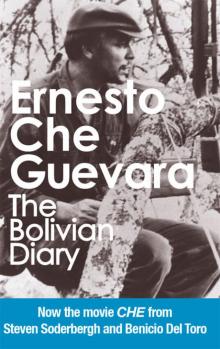 The Bolivian Diary
The Bolivian Diary Caffeine Blues_ Wake Up to the Hidden Dangers of America's #1 Drug ( PDFDrive )
Caffeine Blues_ Wake Up to the Hidden Dangers of America's #1 Drug ( PDFDrive ) The Empty House
The Empty House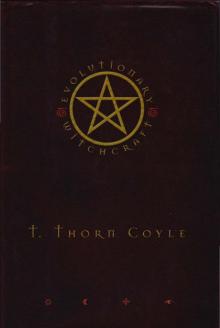 T Thorn Coyle Evolutionary Witchcraft (pdf)
T Thorn Coyle Evolutionary Witchcraft (pdf)![K J Emrick & Kathryn De Winter - [Moonlight Bay Psychic Mystery 01-06] - A Friend in; on the Rocks; Feature Presentation; Manor of; by Chocolate Cake; A-Maze-Ing Death (retail) (epub) Read online](http://freenovelread.comhttps://picture.efrem.net/img/nienyi/k_j_emrick_and_kathryn_de_winter_-_moonlight_bay_psychic_of_by_chocolate_cake_a-maze-ing_death_retail_epub_preview.jpg) K J Emrick & Kathryn De Winter - [Moonlight Bay Psychic Mystery 01-06] - A Friend in; on the Rocks; Feature Presentation; Manor of; by Chocolate Cake; A-Maze-Ing Death (retail) (epub)
K J Emrick & Kathryn De Winter - [Moonlight Bay Psychic Mystery 01-06] - A Friend in; on the Rocks; Feature Presentation; Manor of; by Chocolate Cake; A-Maze-Ing Death (retail) (epub)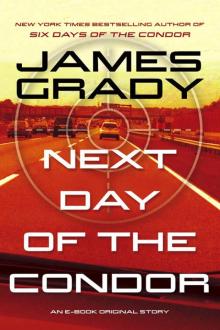 Next Day of the Condor
Next Day of the Condor Onyx
Onyx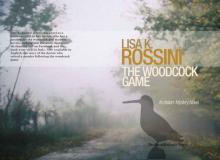 The Woodcock Game: An Italian Mystery Novel
The Woodcock Game: An Italian Mystery Novel Granta 122: Betrayal (Granta: The Magazine of New Writing)
Granta 122: Betrayal (Granta: The Magazine of New Writing)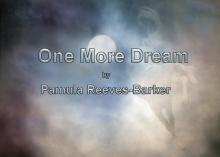 One More Dream
One More Dream Cosa Nostra by Emma Nichols) 16656409 (z-lib.org) (1)-compressed
Cosa Nostra by Emma Nichols) 16656409 (z-lib.org) (1)-compressed Cowboy by J. M. Snyder
Cowboy by J. M. Snyder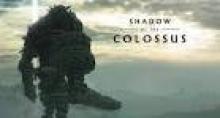 Colossus
Colossus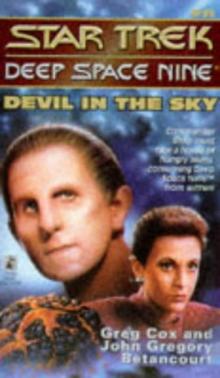 Star Trek - DS9 011 - Devil In The Sky
Star Trek - DS9 011 - Devil In The Sky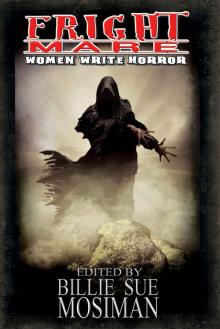 Fright Mare-Women Write Horror
Fright Mare-Women Write Horror The Future Is Japanese
The Future Is Japanese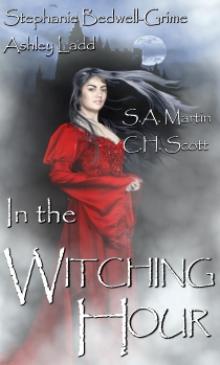 In the Witching Hour
In the Witching Hour Mammoth Books presents Wang's Carpets
Mammoth Books presents Wang's Carpets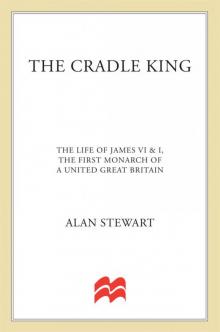 The Cradle King: The Life of James VI and I, the First Monarch of a United Great Britain
The Cradle King: The Life of James VI and I, the First Monarch of a United Great Britain Stalking Moon
Stalking Moon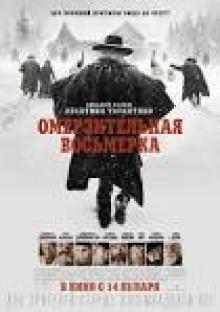 Hostage To The Devil
Hostage To The Devil![Harris, Daisy - Mere Passion [Ocean Shifters 2] (Siren Publishing Classic) Read online](http://i1.bookreadfree.com/i/03/23/harris_daisy_-_mere_passion_ocean_shifters_2_siren_publishing_classic_preview.jpg) Harris, Daisy - Mere Passion [Ocean Shifters 2] (Siren Publishing Classic)
Harris, Daisy - Mere Passion [Ocean Shifters 2] (Siren Publishing Classic) Day, Sunny - Hot in Space (Siren Publishing Ménage and More)
Day, Sunny - Hot in Space (Siren Publishing Ménage and More) Five Books Of The Lives, Heroic Deeds And Sayings Of Gargantua And His Son Pantagruel
Five Books Of The Lives, Heroic Deeds And Sayings Of Gargantua And His Son Pantagruel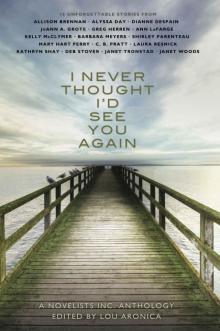 I Never Thought I'd See You Again: A Novelists Inc. Anthology
I Never Thought I'd See You Again: A Novelists Inc. Anthology Billion dollar baby bargain.txt
Billion dollar baby bargain.txt![Chenery, Marisa - Turquoise Eye of Horus [Egyptian Shifters 1] (Siren Publishing Classic) Read online](http://i1.bookreadfree.com/i1/03/26/chenery_marisa_-_turquoise_eye_of_horus_egyptian_shifters_1_siren_publishing_classic_preview.jpg) Chenery, Marisa - Turquoise Eye of Horus [Egyptian Shifters 1] (Siren Publishing Classic)
Chenery, Marisa - Turquoise Eye of Horus [Egyptian Shifters 1] (Siren Publishing Classic) Cat Magic
Cat Magic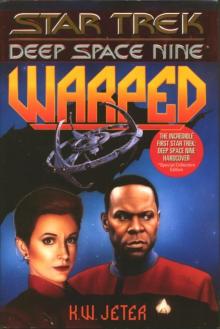 Star Trek - DS9 - Warped
Star Trek - DS9 - Warped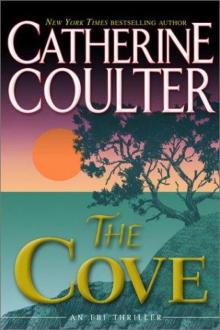 Catherine Coulter - FBI 1 The Cove
Catherine Coulter - FBI 1 The Cove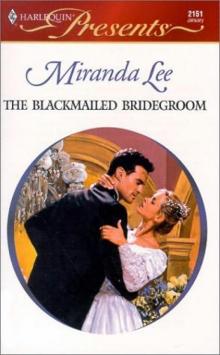 Miranda Lee -The Blackmailed Bridegroom
Miranda Lee -The Blackmailed Bridegroom The Seashell Anthology of Great Poetry
The Seashell Anthology of Great Poetry Dragon Moon
Dragon Moon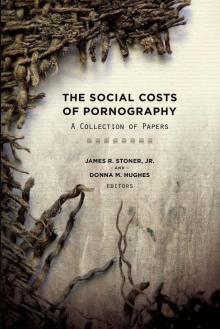 The Social Costs of Pornography: A Collection of Papers
The Social Costs of Pornography: A Collection of Papers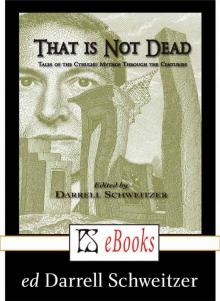 That Is Not Dead
That Is Not Dead Best New Horror: Volume 25 (Mammoth Book of Best New Horror)
Best New Horror: Volume 25 (Mammoth Book of Best New Horror) This Christmas by J. M. Snyder
This Christmas by J. M. Snyder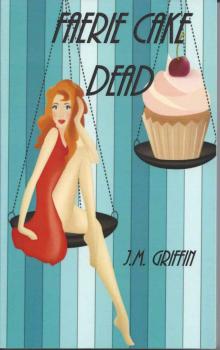 Faerie Cake Dead
Faerie Cake Dead CS-Dante's Twins
CS-Dante's Twins EFD1: Starship Goodwords (EFD Anthology Series from Carrick Publishing)
EFD1: Starship Goodwords (EFD Anthology Series from Carrick Publishing)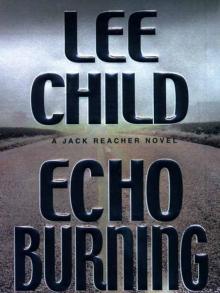 Echo Burning by Lee Child
Echo Burning by Lee Child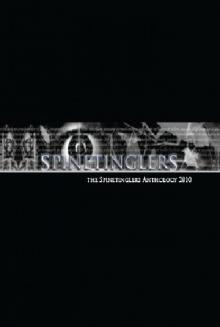 The Spinetinglers Anthology 2010
The Spinetinglers Anthology 2010 Wild Hearts
Wild Hearts Violet Winspear - Sinner ...
Violet Winspear - Sinner ...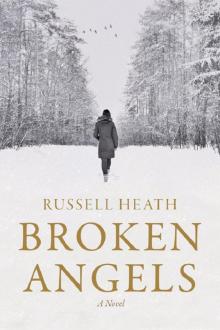 Broken Angels
Broken Angels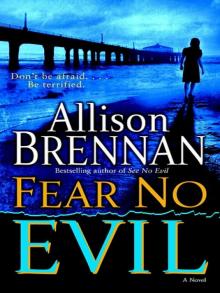 FearNoEvil
FearNoEvil![Santiago, Lara - Range War Bride [Tasty Treats 11] (Siren Publishing PolyAmour) Read online](http://i1.bookreadfree.com/i1/03/30/santiago_lara_-_range_war_bride_tasty_treats_11_siren_publishing_polyamour_preview.jpg) Santiago, Lara - Range War Bride [Tasty Treats 11] (Siren Publishing PolyAmour)
Santiago, Lara - Range War Bride [Tasty Treats 11] (Siren Publishing PolyAmour) 8 Great Hebrew Short Novels
8 Great Hebrew Short Novels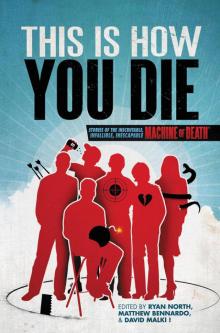 This Is How You Die: Stories of the Inscrutable, Infallible, Inescapable Machine of Death
This Is How You Die: Stories of the Inscrutable, Infallible, Inescapable Machine of Death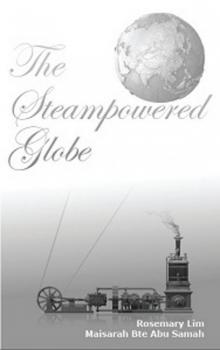 The Steampowered Globe
The Steampowered Globe While We Wait by J. M. Snyder
While We Wait by J. M. Snyder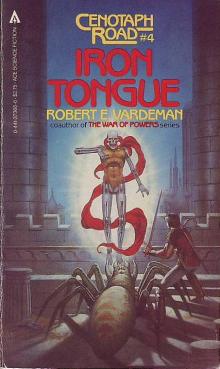 Iron Tongue cr-4
Iron Tongue cr-4![Stieg Larsson [Millennium 02] The Girl Who Played with Fire v5.0 (LIT) Read online](http://i1.bookreadfree.com/i1/03/31/stieg_larsson_millennium_02_the_girl_who_played_with_fire_v5_0_lit_preview.jpg) Stieg Larsson [Millennium 02] The Girl Who Played with Fire v5.0 (LIT)
Stieg Larsson [Millennium 02] The Girl Who Played with Fire v5.0 (LIT)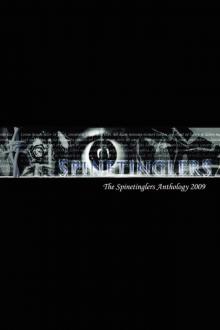 The Spinetinglers Anthology 2009
The Spinetinglers Anthology 2009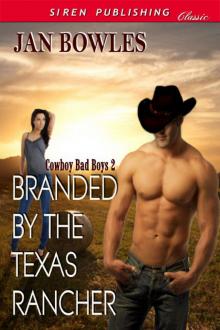 Bowles, Jan - Branded by the Texas Rancher (Siren Publishing Classic)
Bowles, Jan - Branded by the Texas Rancher (Siren Publishing Classic) Brown, Berengaria - Vivienne's Vacation (Siren Publishing Ménage and More)
Brown, Berengaria - Vivienne's Vacation (Siren Publishing Ménage and More) Inheritors
Inheritors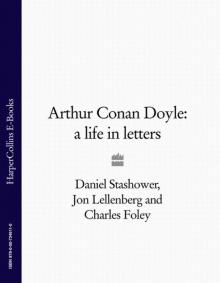 Arthur Conan Doyle: A Life in Letters
Arthur Conan Doyle: A Life in Letters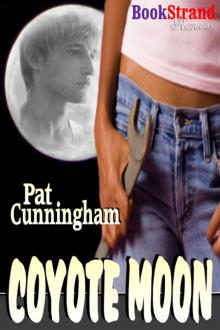 Cunningham, Pat - Coyote Moon (BookStrand Publishing Romance)
Cunningham, Pat - Coyote Moon (BookStrand Publishing Romance)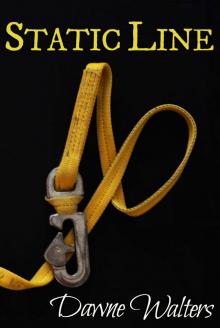 Static Line
Static Line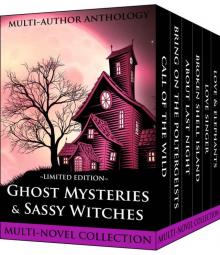 Ghost Mysteries & Sassy Witches (Cozy Mystery Multi-Novel Anthology)
Ghost Mysteries & Sassy Witches (Cozy Mystery Multi-Novel Anthology) Elizabeth Neff Walker - Puppy Love
Elizabeth Neff Walker - Puppy Love Ghosts in the Machine
Ghosts in the Machine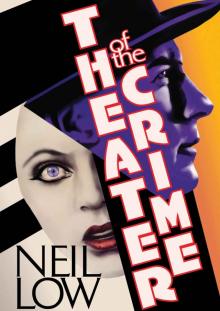 Theater of the Crime (Alan Stewart and Vera Deward Murder Mysteries Book 6)
Theater of the Crime (Alan Stewart and Vera Deward Murder Mysteries Book 6)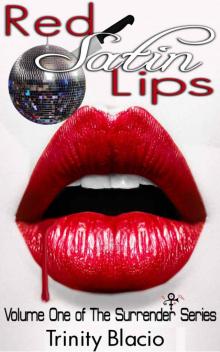 Red Satin Lips, Book One (The Surrender Series)
Red Satin Lips, Book One (The Surrender Series)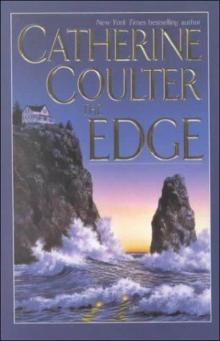 Catherine Coulter - FBI 4 The Edge
Catherine Coulter - FBI 4 The Edge StateoftheUnion
StateoftheUnion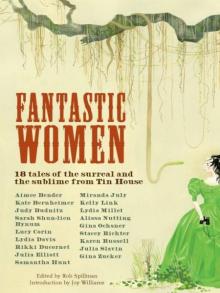 Fantastic Women: 18 Tales of the Surreal and the Sublime from Tin House
Fantastic Women: 18 Tales of the Surreal and the Sublime from Tin House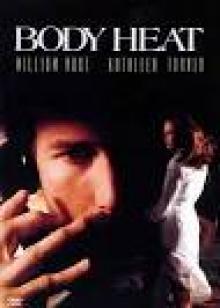 Sara Wood-Expectant Mistress original
Sara Wood-Expectant Mistress original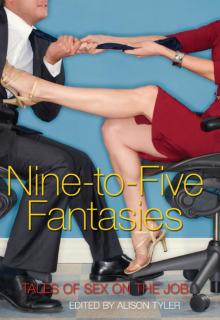 Nine-to-Five Fantasies: Tales of Sex on the Job
Nine-to-Five Fantasies: Tales of Sex on the Job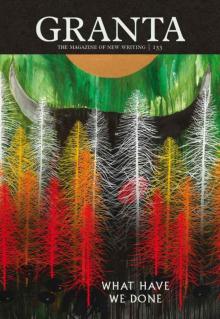 Granta 133
Granta 133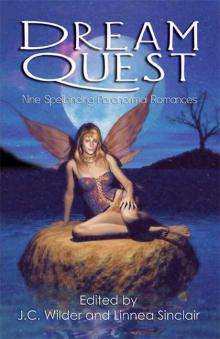 Dream Quest
Dream Quest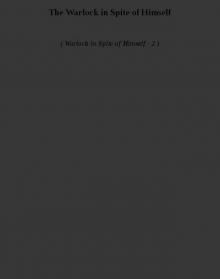 The Warlock in Spite of Himself wisoh-2
The Warlock in Spite of Himself wisoh-2 Glenn, Stormy - Mating Heat (Siren Publishing Ménage Amour)
Glenn, Stormy - Mating Heat (Siren Publishing Ménage Amour)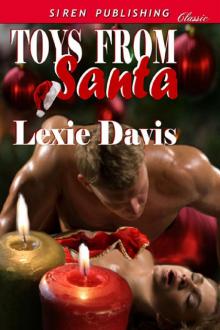 Davis, Lexie - Toys from Santa (Siren Publishing Classic)
Davis, Lexie - Toys from Santa (Siren Publishing Classic) Once Dead, Twice Shy
Once Dead, Twice Shy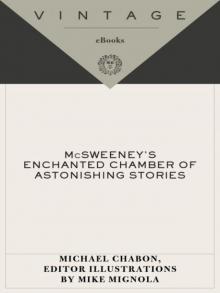 McSweeney's Enchanted Chamber of Astonishing Stories
McSweeney's Enchanted Chamber of Astonishing Stories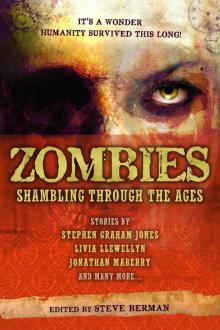 Zombies: Shambling Through the Ages
Zombies: Shambling Through the Ages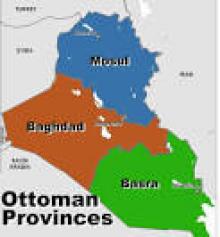 Baghdad Without a Map
Baghdad Without a Map Banshee Cries (the walker papers)
Banshee Cries (the walker papers)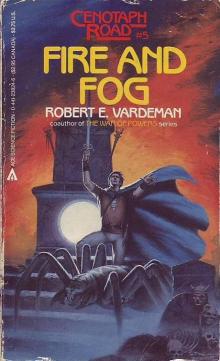 Fire and Fog cr-5
Fire and Fog cr-5 The Twelve Hot Days of Christmas
The Twelve Hot Days of Christmas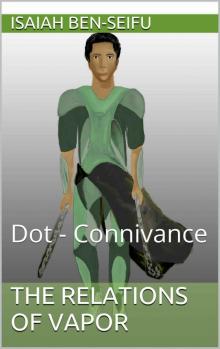 The Relations of Vapor: Dot - Connivance
The Relations of Vapor: Dot - Connivance![Harris, Daisy - Mere Temptation [Ocean Shifters 1] (Siren Publishing Classic) Read online](http://i1.bookreadfree.com/i2/04/11/harris_daisy_-_mere_temptation_ocean_shifters_1_siren_publishing_classic_preview.jpg) Harris, Daisy - Mere Temptation [Ocean Shifters 1] (Siren Publishing Classic)
Harris, Daisy - Mere Temptation [Ocean Shifters 1] (Siren Publishing Classic)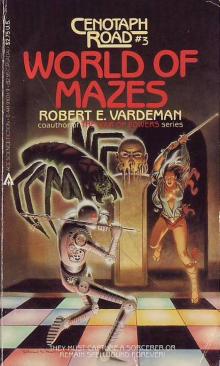 World of Mazes cr-3
World of Mazes cr-3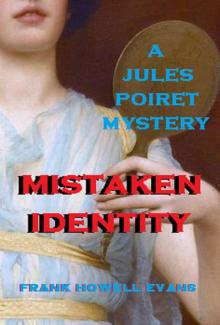 Mistaken Identity (A Jules Poiret Mystery Book 26)
Mistaken Identity (A Jules Poiret Mystery Book 26)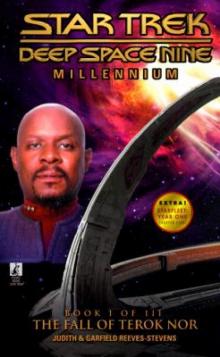 Star Trek - DS9 - Fall of Terok Nor
Star Trek - DS9 - Fall of Terok Nor Not Like I'm Jealous or Anything: The Jealousy Book (Ruby Oliver)
Not Like I'm Jealous or Anything: The Jealousy Book (Ruby Oliver) Skaterboy by J. M. Snyder
Skaterboy by J. M. Snyder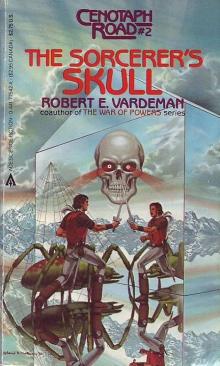 The Sorcerer_s Skull cr-2
The Sorcerer_s Skull cr-2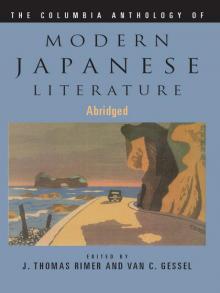 The Columbia Anthology of Modern Japanese Literature (Modern Asian Literature Series)
The Columbia Anthology of Modern Japanese Literature (Modern Asian Literature Series) New Erotica 5
New Erotica 5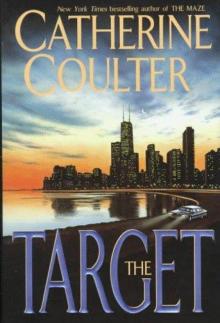 Catherine Coulter - FBI 3 The Target
Catherine Coulter - FBI 3 The Target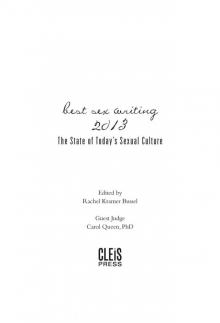 Best Sex Writing 2013: The State of Today's Sexual Culture
Best Sex Writing 2013: The State of Today's Sexual Culture Factoring Humanity
Factoring Humanity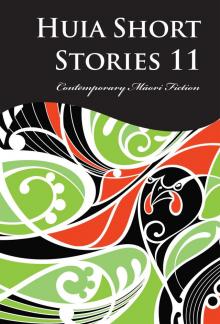 Huia Short Stories 11
Huia Short Stories 11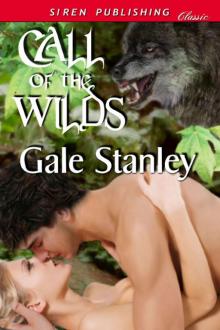 Call of the Wilds
Call of the Wilds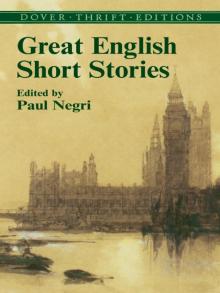 Great English Short Stories (Dover Thrift Editions)
Great English Short Stories (Dover Thrift Editions)![Ramagos, Tonya - Logan's Lessons [Sunset Cowboys 2] (Siren Publishing Classic) Read online](http://i1.bookreadfree.com/i2/04/10/ramagos_tonya_-_logans_lessons_sunset_cowboys_2_siren_publishing_classic_preview.jpg) Ramagos, Tonya - Logan's Lessons [Sunset Cowboys 2] (Siren Publishing Classic)
Ramagos, Tonya - Logan's Lessons [Sunset Cowboys 2] (Siren Publishing Classic)![Morgan, Nicole - Sweet Redemption [Sweet Awakenings 1] (Siren Publishing Allure) Read online](http://i1.bookreadfree.com/i2/04/10/morgan_nicole_-_sweet_redemption_sweet_awakenings_1_siren_publishing_allure_preview.jpg) Morgan, Nicole - Sweet Redemption [Sweet Awakenings 1] (Siren Publishing Allure)
Morgan, Nicole - Sweet Redemption [Sweet Awakenings 1] (Siren Publishing Allure)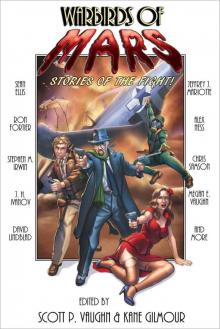 Warbirds of Mars: Stories of the Fight!
Warbirds of Mars: Stories of the Fight!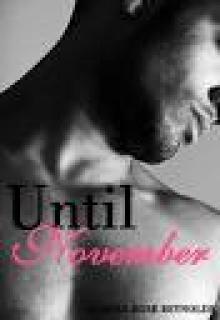 Original Version of Edited Godwin Stories(lit)
Original Version of Edited Godwin Stories(lit)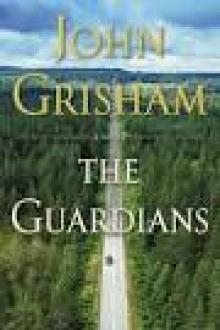 Where The Hell is Boulevard?
Where The Hell is Boulevard?![Chemical [se]X Read online](http://i1.bookreadfree.com/i2/04/13/chemical_sex_preview.jpg) Chemical [se]X
Chemical [se]X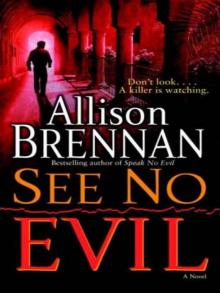 Allison Brennan - See No Evil
Allison Brennan - See No Evil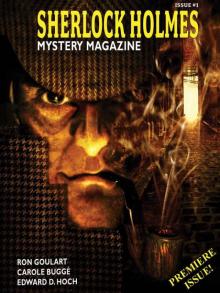 Sherlock Holmes Mystery Magazine #1
Sherlock Holmes Mystery Magazine #1